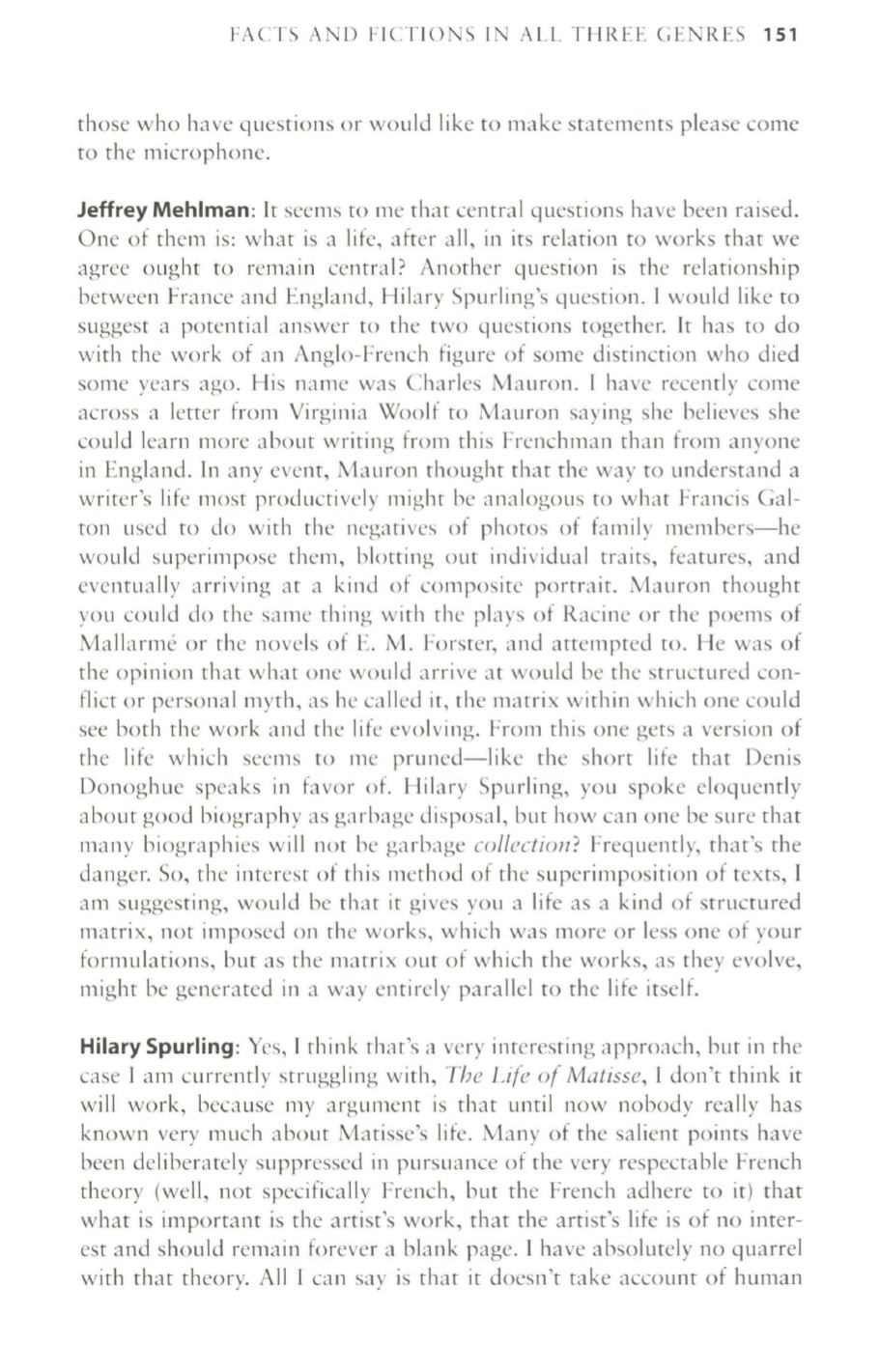
~ACTS
ANI) FICTIONS IN ALL TIIREE GENRES
151
those who have questions or woulo like to make statements please come
to the microphone.
Jeffrey Mehlman: It
seems
to
me that central questions have been raised.
One of them is: what is a life, after all, in its relation to works that we
agree ought to remain central? Another question is the relationship
between france and England, Hilary Spurling's question. I would like to
suggest a potential answer to the two questions together. It has to do
with the work of an Anglo-hoench figure of some distinction who died
some years ago. His name was Charles Mauron. I have recently come
across a letter from Virginia Woolf to Mauron saying she believes she
could learn more about writing from this frenchman than from anyone
in England. In any event, Mauron thought that the way to understand a
writer's life most proouctively might be analogous to what Francis Gal–
ton used to do with the negatives of photos of family members-he
would superimpose them, blotting out individual traits, features, and
eventually arriving at a kind of composite portrait. Mauron thought
you could do the same thing with the plays of Racine or the poems of
Mallarme or the novels of E. M. Forster, and attempted to. He was of
the opinion that what one would arrive at would be the structured con–
flict or personal myth, as he called it, the matrix within which one could
see both the work and the life evolving. from this one gets a version of
the life which seems to me pruned-like the short life that Denis
Donoghue speaks in favor of. Hilary Spurling, you spoke eloquently
about good biography as garbage disposal, but how can one be sure that
many biographies will not be garbage
collection?
Frequently, that's the
danger. So, the interest of this method of the superimposition of texts,
I
am suggesting, would be that it gives you a life as a kind of structured
matrix, not imposed on the works, which was more or less one of your
formulations, but as the matrix out of which the works, as they evolve,
might be generated in a way entirely parallel to the life itself.
Hilary Spurling:
Yes, I think that's a very interesting approach, but in the
case I am currently struggling with,
The Life of Matisse,
I don't think it
will work, because my argulllent is that until now nobody really has
known very Illuch about Matisse's life. Many of the salient points have
been deliberately suppresseo in pursuance of the very respectable french
theory (well, not specifically French, but the french adhere to it) that
what is important is the artist's work, that the artist's life is of no inter–
est and should remain forever a blank page. I have absolutely no quarrel
with that theory. All I can say is that it doesn't take account of human


